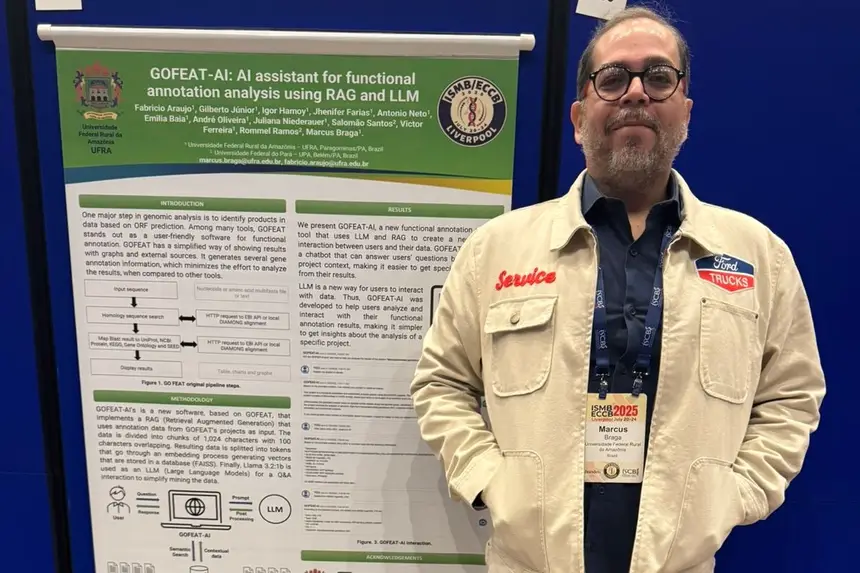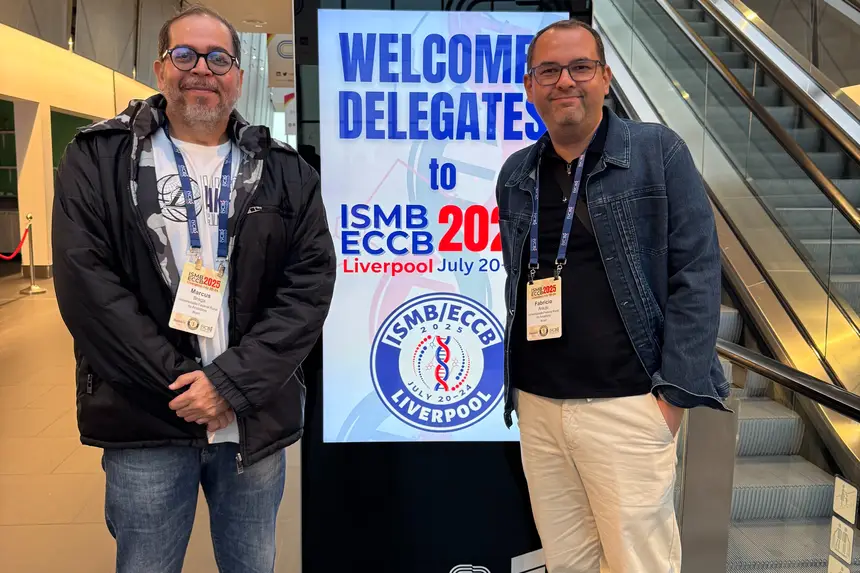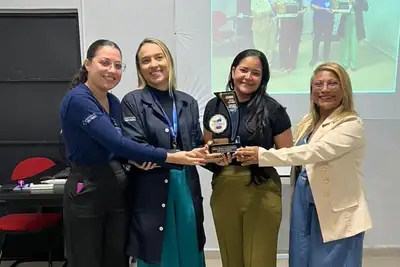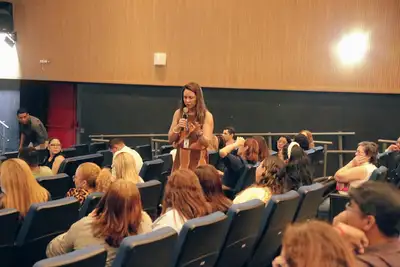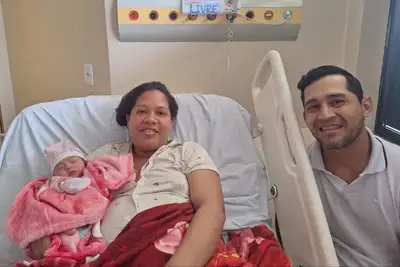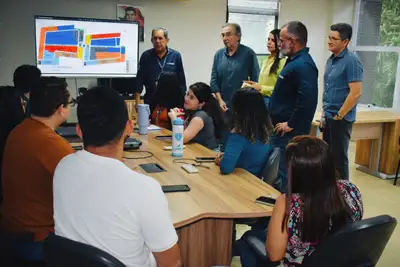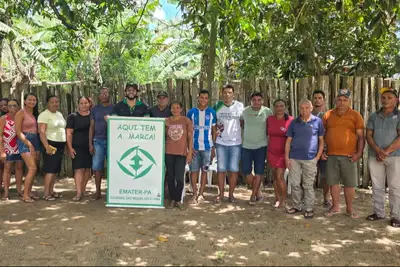Researchers supported by Fapespa present work in England
Professors Marcus Braga and Fabrício Araújo from UFRA attended the 33rd Annual International Conference on Intelligent Systems for Molecular Biology
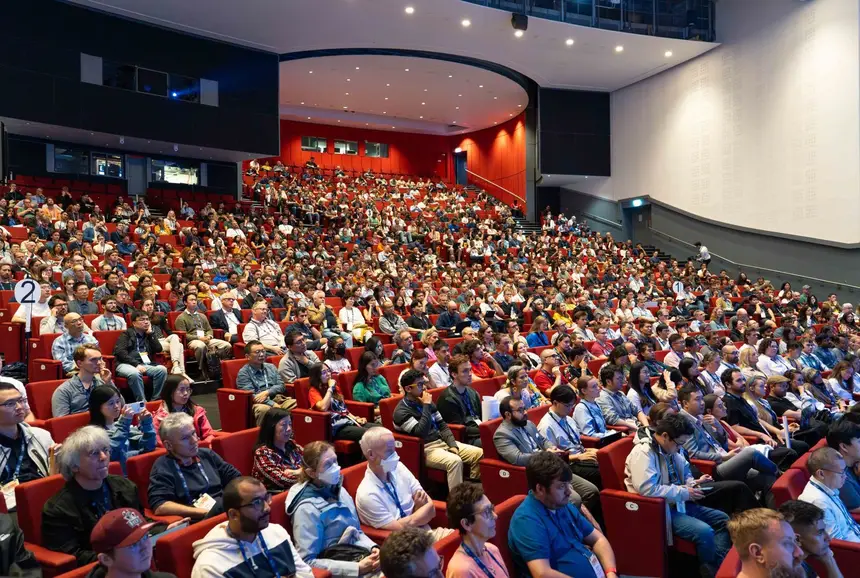
Researchers from the Federal Rural University of the Amazon (UFRA), Marcus Braga and Fabrício Araújo, presented their scientific work at the largest gathering of bioinformatics and computational biology in the world, the Annual International Conference on Intelligent Systems for Molecular Biology (ISMB). The event was held jointly with the European Conference on Computational Biology (ECCB), hosted at the ACC Liverpool Convention Centre in England, from July 20 to 24.
On this occasion, the scientists presented at the event “GOFEAT-AI: AI assistant for functional annotation analysis using RAG and LLM,” a functional annotation analysis tool that uses generative artificial intelligence (AI) techniques to create a way for users to interact with their data.
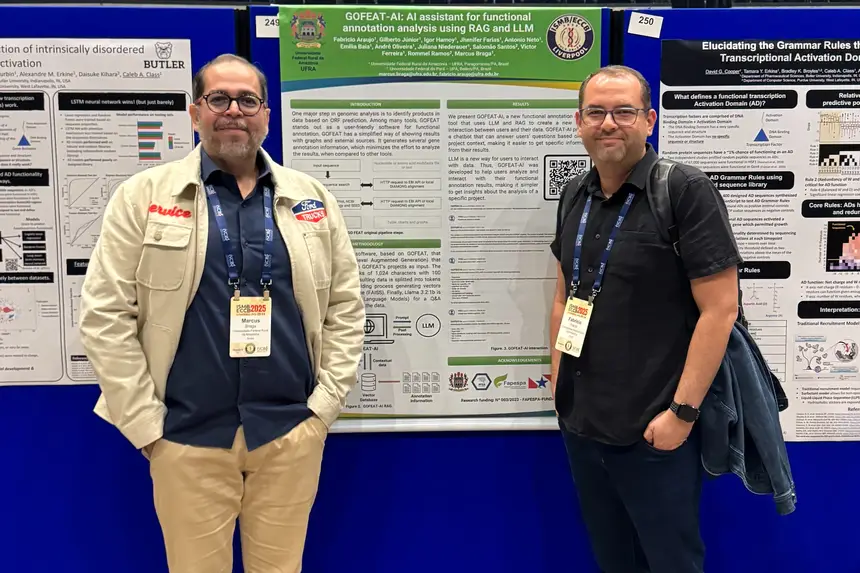
The work is part of a larger research project from the Applied Computing Research Center (NPCA) at UFRA, which received support from the Government of Pará through the Amazon Foundation for Support of Studies and Research (Fapespa), via calls for proposals in 2021, 2022, and 2023. According to Marcus, the contributions made by the government through Fapespa helped the research group to structure itself, even being located in the interior of the state.
Innovation- The platform aims to be a chatbot that can answer users' questions based on the project's context, facilitating the retrieval of specific information from the results and allowing the user to interact with their project data in natural language. Professor Marcus Braga, who is responsible for the work, explains that “This type of technology has become quite sought after nowadays and is built with the new generation of artificial intelligence, known as generative AI.
“What is most sought after today are personalized AI systems that can use generalist models and also the specific data from a particular domain area, such as law, mathematics, medicine, accounting, or any other. Thus, we can ‘feed’ the generalist AI (like ChatGPT, for example) with particular knowledge we are interested in, providing texts (in various formats, such as .pdf or .doc), graphs, images, sounds, films, etc.,” says the researcher.
ISBM/ECCB 2025 – As the most important computational biology event of this year, the main focus of the joint conference was the development and application of advanced computational methods to address biological problems.
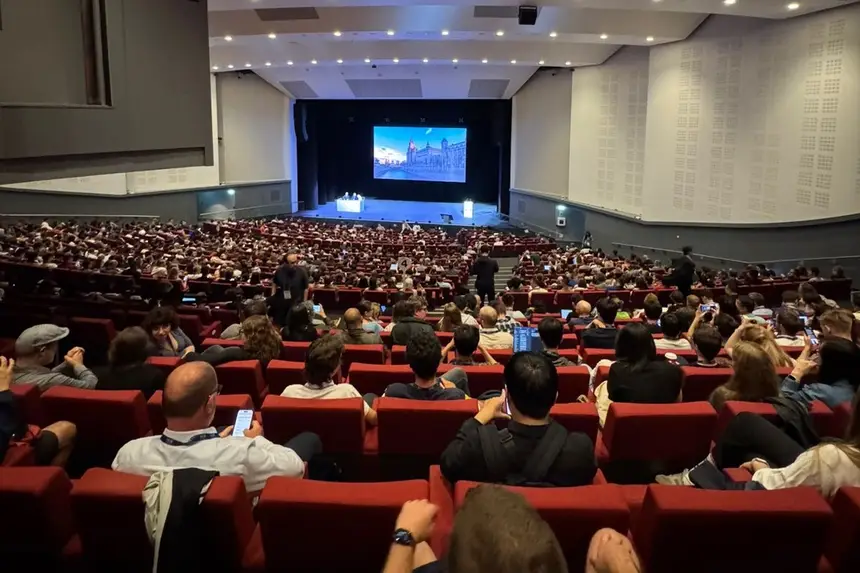
The event brought together researchers from computer science, bioinformatics, computational biology, molecular biology, mathematics, statistics, and related fields, both in person and virtually through the ISCB Nucleus platform, and offered a multidisciplinary platform for sharing the latest advances in bioinformatics and computational biology, fostering new dialogues and perspectives to shape the future of the field.
Applied Computing Research Center (NPCA)
Located in Paragominas, the research group is dedicated to investigating applied computing techniques through long-term, umbrella-type research projects that encompass other more specific and localized research. “With support like that from Fapespa, we were able to acquire high-performance computing servers and all the necessary equipment for the continuous development of these works, in addition to scholarships for teachers and students to carry out their scientific activities,” says Braga.
An example of these long-term projects is the “Study of Emerging Methods and Techniques of Deep Learning,” in which researchers dedicate themselves to learning, exploring, and experimenting with new computational methods, especially in artificial intelligence and bioinformatics. Thus, when specific projects are demanded, the group tests these new techniques to try to solve the problems that the projects present.
According to Marcus, in this way, the group has applied technology to projects that encompass the areas of health and agricultural sciences, such as the COVID Project, which produced biweekly reports with epidemiological forecasts for the government of Pará during the pandemic, the CIDD Project, which developed an AI application to detect diseases in Pará's cocoa, and the SDIA project, which developed an AI application to track children with developmental delays. “In all these cases, we applied the cutting-edge technologies we have researched to solve real problems demanded by society in Pará,” asserts the researcher.
“It is extremely relevant for us to be able to publicize the research conducted in Pará at an international level. Scientific collaboration is a decisive factor for improving the impact of this research,” evaluates Fapespa manager, Marvel Botelho.
Text: Beatriz Rodrigues, intern, under the supervision of Manuela Oliveira – Ascom/Fapespa


